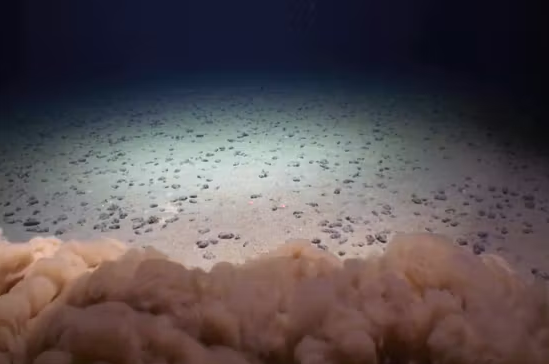Marine pollution is an urgent problem threatening the health of our oceans. From plastic waste to chemical and agricultural runoff and microplastics, various pollutants degrade marine ecosystems and impact biodiversity.
The European Pavilion for the Digital Ocean at the third United Nations Ocean Conference, open to the public from June 2 to 13, 2025, will allow visitors to discover and interact with EU tools and contributions that strengthen Europe’s leadership in global ocean governance and in the mitigation and control of marine pollution.
The INSPIRE zone, part of the pavilion, will host daily TEDx-style sessions. The audience will hear from a range of experienced presenters discussing ocean health, marine debris, oil spills, solutions to noise pollution, and much more.
Coordinated by Mercator Ocean International, the Pavilion highlights the pivotal role of digital tools in monitoring, understanding, and fighting marine pollution. The Pavilion will cover various aspects of ocean conservation, with marine pollution as a key theme.
Mercator Ocean has been at the forefront of marine pollution efforts through international collaboration and by addressing real pollution events to protect marine biodiversity.
The EU Digital Twin Ocean
The EU Digital Twin Ocean (EU DTO) is an advanced digital representation of the ocean designed to provide comprehensive information on marine environments. Developed by Mercator Ocean International, the EU DTO integrates data from the Copernicus Marine Service and EMODNet, the European Marine Observation and Data Network, to create a detailed and interactive ocean model.
In an era of rapid ocean changes, growing environmental threats, and climate disruptions, the ability to track pollution is more essential than ever. Mercator Ocean addresses this need by integrating artificial intelligence into its modeling systems and pioneering the development of the EU DTO.
By simulating hypothetical scenarios under various climate and human pressure conditions, it serves as an invaluable tool for planning resilience and sustainability. For example, citizens can contribute to biological and ecological observation campaigns (such as on plastics) to improve models and use them for personal purposes, such as checking clean bathing spots.
Fighting marine pollution
The EU Digital Twin Ocean uses cutting-edge technology to combat marine pollution through its innovative Plastic Tracker application. This tool allows users to visualize the origin or destination of plastic pollution in a specific area based on three years of drift model simulations. Additionally, it enables scenario testing aimed at reducing plastic in rivers and coastal areas, thereby protecting marine environments and coastal communities from the harmful effects of plastic pollution.
Visitors to the DECIDE area of the European Digital Ocean Pavilion will have the chance to explore the Plastic Tracker application firsthand. This interactive experience will demonstrate how advanced modeling and simulation can inform effective strategies to combat plastic pollution, highlighting the EU DTO’s commitment to promoting a cleaner, healthier ocean.
Learn more about the European Digital Ocean Pavilion
Marine pollution is a critical issue requiring immediate and innovative solutions. The European Digital Ocean Pavilion at the third United Nations Ocean Conference (UNOC3) will offer visitors the opportunity to explore the importance of fighting marine pollution. Coordinated by Mercator Ocean International, the pavilion will highlight the central role of digital tools in monitoring, understanding, and combating marine pollution.
Through interactive exhibits and cutting-edge simulations, visitors will learn about the impact of marine pollution and discover innovative solutions to mitigate these risks and promote sustainable ocean management and stewardship. This immersive experience will inspire collective action and emphasize the importance of global collaboration in safeguarding our oceans.
Join us in our mission to fight marine pollution! Register here to participate in the online broadcast of the European Digital Ocean Pavilion activities at UNOC3, or come visit us on-site to explore innovative solutions for sustainable ocean management.



